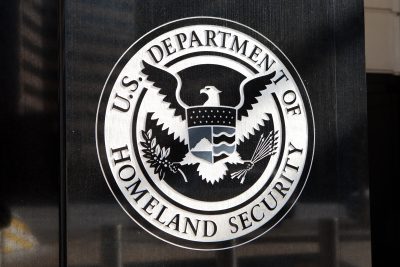Legal System
A just and fair legal immigration system upholds due process and adherence to the rule of law, while effectively managing immigration. Our efforts work to uphold the best version of the system, holding government entities accountable for fairly enforcing policies and addressing injustices at all levels of government.
What does the constitution say about due process?
The Fifth Amendment to the Constitution says clearly that no person shall be deprived of life, liberty, or property without the due process of law. Note that this says person, not citizen, and over the years the Supreme Court has consistently ruled that the Due Process Clause applies to all people in the United States.Do non-citizens have the right to due process in the U.S.?
Yes. The Constitution guarantees due process rights to all "persons," not just citizens. This means non-citizens, including undocumented immigrants, are entitled to fair treatment under the law. This includes the right to defend themselves in court. But recent Trump administration policies that speed up deportations and limit access to legal representation make it harder for non-citizens to get their fair day in court.- Access to legal representation Access to legal counsel is an essential part of our justice system and our democracy. In the criminal justice system, anyone facing even one day in jail gets a lawyer if they can't afford one. But immigrants facing deportation usually don't get that chance.The research is clear – the most effective way to ensure some level of due process for people navigating our complicated immigration system is for them to have trained attorney at their side. But Trump administration is now working to strip attorneys from as many people as possible, all in the name of increasing its deportation numbers. This attempt to eliminate basic due process will hurt people who already have few options.
- Fair day in court Due process guarantees that individuals have the opportunity to defend themselves in court. This includes non-citizens facing deportation.
Why is due process important?
We are seeing right now the importance of due process when it comes to President Trump's actions to carry out the so-called Alien Enemies Act, a 1798 wartime law that permits people to be deported outside of the normal framework of immigration law. President Trump has alleged that this law allows him to simply point at any person, declare them to be an alien enemy, and kick them out of the country without ever having a chance to see a judge. Thankfully, the Supreme Court said that is not true, and in a unanimous decision, ruled that people can challenge the Trump administration's invocation of the Alien Enemies Act. That is why due process is so important, because it means that no person can be rounded up and sent to another country without a chance to go to court and make the government prove their case.How is the American Immigration Council working to protect due process?
- We serve thousands of individuals in immigration detention centers through the Immigration Justice Campaign, our initiative with the American Immigration Lawyers Association. The Justice Campaign provides free legal services for immigrants who would otherwise have to navigate our complicated immigration system without a lawyer.
- We use the courts to demand a fair process for immigrants. Our litigation team is fighting back against the Trump administration’s blatant disregard for due process including filing a lawsuit challenging their illegal detention of immigrants in El Salvador’s notorious Terrorism Confinement Center (CECOT).

Strategies and Considerations in the Wake of Niz-Chavez v. Garland
This practice advisory by the Council and partners provides an overview of the Niz-Chavez v. Garland decision and its impact on eligibility for cancellation of removal; eligibility for post-conclusion voluntary departure and broader applications of the decision. Read More

DHS Issues New Guidance for Government Attorneys in Immigration Court Proceedings
U.S. Immigration and Customs Enforcement’s (ICE) Office of the Principal Legal Advisor (OPLA) issued a new memorandum on May 27 that provides guidance on how its attorneys can and should exercise prosecutorial discretion. In the memo, which was made public on Friday, the lead government attorney for the Department… Read More

Coalition Letter Expresses Concerns About Proposed Expedited Asylum Process
The Council expressed concerns about the Biden administration's plans for a new type of expedited asylum proceedings. Read More

Coalition Letter Urges Biden Administration to End Migrant Protection Protocols
The Council urged the Biden administration to improve MPP wind down processing and toy move ahead with a second phase to include all individuals subjected to MPP. Read More

Council Files Amicus Brief on the Legality of Prolonged Mandatory Detention
The amicus brief in Ayom v. Garland urges the eighth circuit to affirm that mandatory detention has constitutional limits, and reject the endorsement of prolonged mandatory detention for people in removal proceedings. Read More

‘Freedom of Information Act and Immigration Agencies
This Practice Advisory provides a broad overview of the Freedom of Information Act (FOIA), including how to make a FOIA request and how to appeal an inadequate response. Read More

New ‘Dedicated Docket’ Could Rush Asylum-Seeking Families Through Court
The Department of Homeland Security (DHS) and the Department of Justice (DOJ) announced on May 28 the creation of a new “Dedicated Docket” in immigration court for the claims of asylum-seeking families. The goal of this new “rocket docket” is to complete most new cases within 300 days. A… Read More

Supreme Court Rejects Two Ninth Circuit Decisions That Protected Immigrants
In two unanimous decisions, the Supreme Court has rejected rules that provided protections for immigrants. The rejected rules came from the U.S. Court of Appeals for the Ninth Circuit, a court with a reputation as a liberal stronghold. It is the largest of all the federal courts of appeals. In… Read More

Request to Repeal EOIR Rule Imposing Immigration Fee Increases
The American Immigration Council and over 150 organizations supporting people in proceedings before the Immigration Courts or the Board of Immigration Appeals (BIA) sent a letter to the Executive Office of Immigration Review (EOIR)—which oversees immigration courts and houses the BIA— to request the repeal of the EOIR rule that… Read More

New Report Examines Biden’s Approach to Immigration Enforcement
A new American Immigration Council report examines the Biden administration’s approach to the U.S. system of immigration enforcement during its first 100 days in office. Read More
Make a contribution
Make a direct impact on the lives of immigrants.
